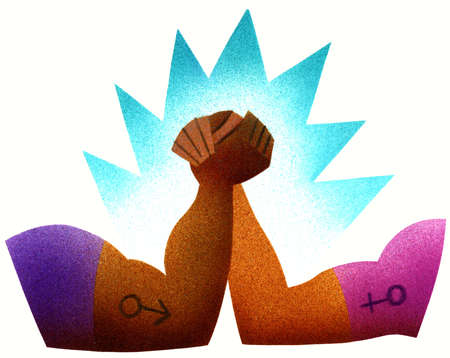With our everyday social interactions and relationship building, comes conflict, there’s no way around it. But that doesn’t always mean it’s a bad thing. Conflict can make us step outside our own comfort zones, it encourages us to grow and develop further and sometimes it can even help us in setting healthy boundaries.
With that in mind, conflict can be handled poorly or conflict can be handled proactively. I often strive for the latter as the whole purpose of conflict is to find a way to make things better and come out of the other side.
Below are a number of dot points that essentially summarise conflict resolution in a nutshell. No words wasted, just the things you need to read. No dogma, take from it what you feel is useful, and make it your own.
Harsh truths to note first
- To get a result in life, you need to put in the effort
- Life has no place for pettiness. Learn how to communicate and aim to resolve problems, not create more
- Don’t give people so much power over you that their silent treatment leaves you questioning your worth
- Don’t want to be a doormat. Stop playing the victim and do something about it
- People who repeatedly use silence to control, punish, test boundaries, avoid accountability or even discussing unpleasant issues are who block conflict resolution. Whatever their methods, it’s far less effective than open, healthy communication.
- When two parties play the silent treatment, the winner is often the ones who cares to least. Don’t strive to be the winner…
How to Self-care when managing conflict
- Manage your stress levels effectively to stay alert and calm.
Go play a sport, read a book, go for a walk, do something for you that calms you down.
- Manage your emotions.
There is nothing wrong with feeling your emotions but make sure they don’t drown you. To stay logical and as focused as possible, we need to ensure our emotions don’t take us down an irrational path that will only create more stress and dig in deeper
- Take a step back to keep perspective
This does not translate into the silent treatment (that, in my eyes, is pure manipulation). Just taking a short time-out to process, catch a breath, and come back calm and proactive; can prevent a sensitive situation from escalating.
- Know your boundaries
You might not know what you want from a given situation, but more often than not, we know what we don’t want out of something or someone. Be clear on what your boundaries are, if it’s not out loud, at least for yourself.
Useful Techniques to manage conflict
- Respect
No matter how angry you can get or how unreasonable you feel someone might be… respect is key. You can demonstrate anger and frustration and still remain respectful to one another.
- Throw pettiness out the door
This goes hand in hand with respect. A conflict will not be resolved through insults or the silent treatment. Avoiding a conflict will most certainly not resolve it. Is it about winning or is it about finding a solution together?
- Be clear and precise
It’s been my experience that 70% of conflicts (yes I just made that statistic up) results from a simple misunderstanding or bad communication. Being clear and to the point of what the actual issue and desired outcome is (without diverting onto other topics) often clears up a path much faster than going around in circles. It can be difficult to remain clear and keep perspective when your words are misquoted, exaggerated or emotional manipulation is being used. Just remember that you have the right to your opinion and to express it, just like you should allow others to express theirs.
- Walk a mile in their shoes
It’s important to take on board everyone’s opinion and not just your own. If the person you have a conflict with feels a certain way, even if you feel it’s greatly exaggerated, acknowledge that you would feel the same way as they do now, if the situation as they see it was indeed true… because for them, at the moment… it is. This allows you to respect what they’re feeling and at the same time give clarity of what you feel the misunderstanding is about. Two truths are happening in a conflict, so find the common ground.
- Don’t attack (even with words), take a non- violent approach
When you take on the approach that you’re not there to accuse, attack or insult; but rather to resolve, you’ll also show that you will not respond nor fight back when you yourself are attacked. This works well with people who try to manipulate or aggravate the situation. If you don’t feed the angry wolf, the peaceful one will eventually win.
- Find a common goal and compromise
We can’t always get our way nor should we let people walk all over us either. Finding a middle ground for all parties involved is often the best solution (if this is an option of course). Clearly stating what the common goal would be and which boundaries each party would like respected is a targeted way to avoid the issue from coming up again.
Just Remember …
“Conflict is inevitable, but combat is optional”
– Max Lucado











